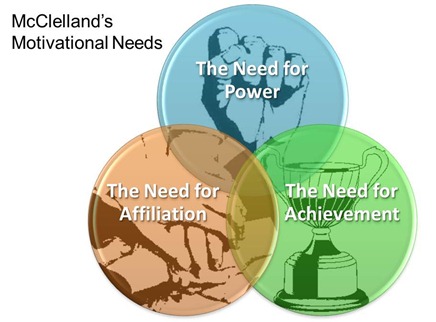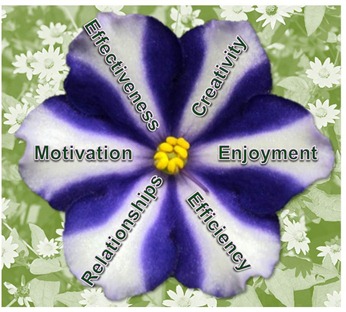On a couple of occasions, the Management Pocketblog has referred to David McClelland’s theory of Motivational Needs. The first time was in comparing it with Self Determination Theory, and the second was earlier this year, when we were thinking about job satisfaction.
In neither of these is the model fully explained – although you will find eight pages devoted to it in The Management Models Pocketbook and three in The Motivation Pocketbook – which is a veritable compendium of motivation theories.
Motivating me with McClelland’s Model
Let’s say you want to motivate me to take on a new role. It can be any role, but let’s suppose you need someone from customer support to step into a sales role… which is not my preference and so I am not (yet) keen.
The first thing to note, is that I can never succeed without some decent training and support. But I am not going to absorb that training and properly use the support unless you have motivated me to want to do the job. So how can you present this as an opportunity for me to seize and savour?
McClelland suggested that we all have three needs, but that we each have them in different amounts. If you can appeal to my strongest need, then I will take the opportunity to fulfil it.
The Need for Power
Suppose my strongest need is for power (evil Bond-villain laugh, while stroking a white cat). You can present this new role as an opportunity for me to impress my peers, to stand out from them and to stand above them, by moving into a directly cash generating role. It is a chance to show what I can do and get myself promoted. If I do this role well, you might tell me, I will be looked up to and move into a sales management position from where I can control the sales process and lead a sales force. The sales I make can create respect and generate bonuses that will enhance my prestige.
The Need for Achievement
If my strongest need is for achievement, I will see the trappings of power as appealing but superficial markers of success. What really matters to me will be the sense that I have done something worthwhile and challenging. You must assure me that the task I am taking on is difficult. My need for achievement will not be satisfied by doing something easy. But equally, i have to feel that I can achieve something, so you must also reassure me that the task is possible, if I work at it. Set me targets and watch me meet them. Reinforce my success by recognition and more stretching targets still.
The Need for Affiliation
If, however, my strongest need is for affiliation, nothing will matter much unless I feel a part of a group, a team, a social network, So you must emphasise what a collaborative, social role sales is. You must show me how I need to work as a team with colleagues from marketing, design, manufacturing… You would also do well to emphasise the social nature of selling; building relationships with customers and nurturing those relationships. Show me how success means a strengthening of bonds and a joint celebration and yet how, in failure, we will all have a chance to learn together and collectively renew our commitment.
So here’s the Deal
McClelland gave us one of the best-researched models for workplace motivation – which is pretty reliable at predicting job satisfaction. But any job can be framed and adjusted. If you know the needs of your team – and you should be able to get to know them that well, as their manager – then you can use it to ensure all are motivated effectively.


